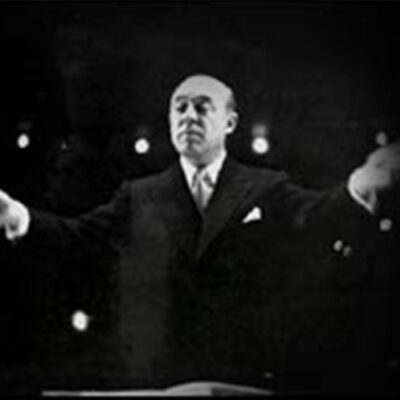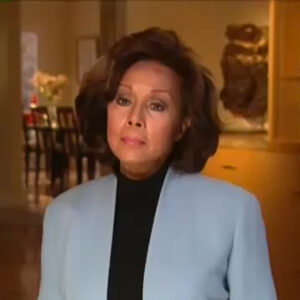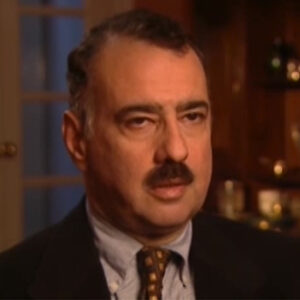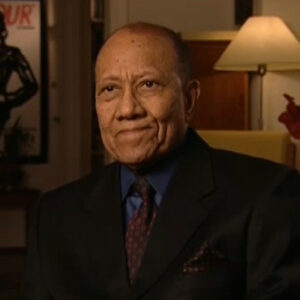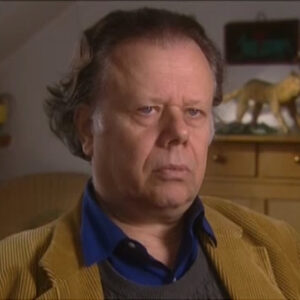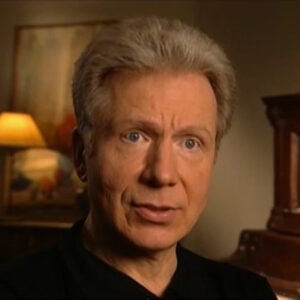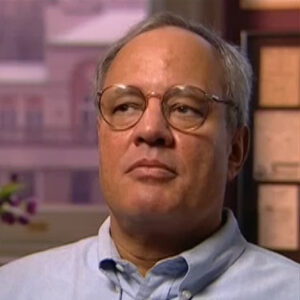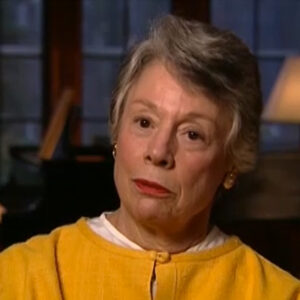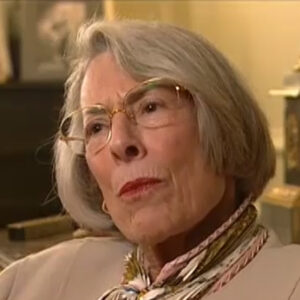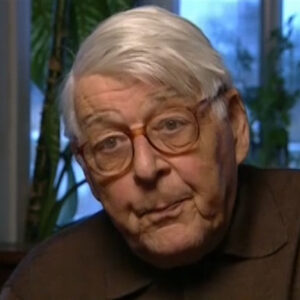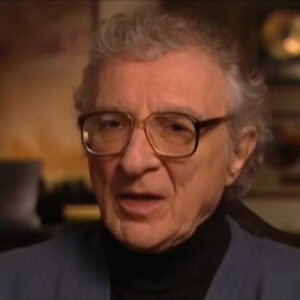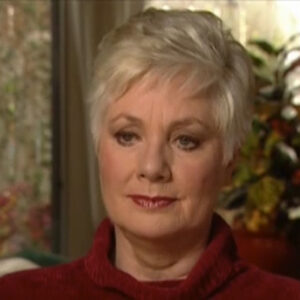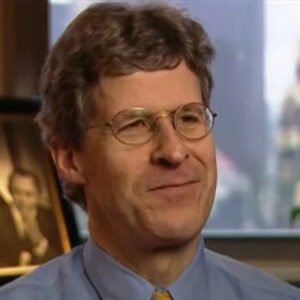Speaker 1 When, uh, the music, but did you always want to be a musician? As was always the piano.
Speaker 2 When I was about five years old, I started playing the piano. We had a piano at home and I used to go to the piano and pick out little things that I’d heard on the radio. And, you know, everybody said, oh, look, isn’t she cute looking and doing and stuff? I had two older sisters. Who had been given piano lessons and violin lessons and all kinds of lessons and they didn’t really care about practicing and so forth. So by the time I came along, money was little tight and my parents were very much disenchanted with the idea of going through the whole music lesson thing again. So I kept saying, I want to take piano lessons. And they said, you know, later, anyway, I prevailed and prevailed. Finally, when I was about eight years old, I began studying classical music. Which was fine, except that I always wanted to play jazz and I used to hear things on the radio and you know how you wanted to improvise on the things that I was supposed to be practicing and those that did not go over to well, with my piano teachers. And they used to say, stop playing that boogie woogie all the time. So. I studied classical music at the same time, harboring this this deep desire to play jazz, because I had heard Nat Cole and Art Tatum and Teddy Wilson and all those marvelous people, and it really inspired me. I studied classical music for about seven years. And then I, uh, I concentrated on what kind of music I really wanted to play.
Speaker 1 You didn’t like people telling you what to do, right? Tell me if and when there was a moment when you first became aware of the music of Richard Rodgers and where you were.
Speaker 2 You know, I can’t remember the exact moment because I was always aware of the music of Richard Rodgers, anyone who who plays popular music or who is interested in show tunes is aware of the music of Richard Rodgers, though I must say when I was younger, when I was very young, I may not have thought about the fact that Richard Rodgers wrote such and such a song that I was nuts about. I remember when I was 12 years old, my sister took me to Boston and we lived in Worcester, Massachusetts, and she took me to Boston to see pal Joey. And I think maybe that was the first time I was really aware of Richard Rodgers as a composer.
Speaker 1 What was that like, describe that event, a 12 year old going to a.
Speaker 2 It was heaven, it was sheer heaven to to hear those songs, Bewitched, bothered and bewildered, you know, all those wonderful songs. It was what I was interested in anyway. And I hadn’t had an opportunity to be exposed to live theater before. So that was my first adventure. And then from then on, I was hooked.
Speaker 1 Talk about. Talk about me and Juliet when it was and how you came to play and people may not know about, so you do need to tell us that it’s sort of, you know, you were on stage with Sarah.
Speaker 2 I was approached to audition for a show, a Rodgers and Hammerstein show called Me and Juliet. And at that time, I was in New York, I was I had already come to New York and I had a trio and I was working at a place called the embassy, which was the really special jazz room on the east side. The thing that made it so special was that it was a jazz room, a great jazz room, and it was on the east side of New York rather than the west side of the village. And I was appearing there with my trio and very happy and just doing exactly what I wanted to be doing. And there was an agent from the William Morris office named Charlie Baker, who used to come in all the time. And he said to me one night, you should go and audition for Rodgers and Hammerstein because they’re casting a new show called Me and Juliet. And they want someone who can play the piano and perhaps say a few lines. So I said, I’m not interested, I want to play jazz, I’m just doing what I want, you know, don’t don’t bother me. But he persisted. He came in night after night. He said, why don’t you just go and audition? And they can’t find anybody. They’ve auditioned a lot of people and they can’t find exactly what they want. So why don’t you just go and do it? So more or less just to get him off my back, so to speak? I said I would and. My bass player at that time, Joe Shonen, and the drummer, I was using her voice and then the three of us went early one morning, you know, those those audition scenes, Bear Theater, bare bulb over the stage and sitting in the audience, Mr. Rogers, Mr. Hammerstein and George Albert. I must tell you that I was not nervous at all, the reason being that I didn’t want the job anyway, so I didn’t care. Had I really wanted it, I would have been shaking. But and then I thought, well, maybe it was a good idea to to do a Richard Rodgers song. So we played The Lady is a Tramp, you know, like. So. So we played and played one chorus and usually they say, OK, that’s enough, you. We played one chorus, played another chorus. So I kept I was thinking, well, you know, what should I do? Should I just stop? So we played about three choruses and then I figured it was time to finish and they said, thank you very much. And then before I knew it that afternoon, they called and said that we had to we had the gig. I didn’t know whether it’d be happy or sorry at that moment, I mean, I was terribly impressed and thrilled with the idea of working with Mr. Rogers.
Speaker 1 And did you say that again? Our we had a big horn
Speaker 2 right at that. Yes, I was. I was I was really thrilled and, of course, totally impressed with the idea of working with Mr. Rogers and Mr. Hammerstein. I didn’t know what to think of what it was going to be like. You know, I had never had any frame of reference for being in the theater. It had never been one of my dreams. But anyway, we went through all the rehearsal period and then I got to know what a treat I was in for, what a marvelous experience it was. Knowing getting to know Richard Rogers a little bit was unbelievably wonderful. He was so nice to us because we were different from the rest of the people in the cast. And by that I mean we were not in the chorus. We were not stars. We had our own little niche because we were musicians and we were on stage, you see, so at the beginning of the show, I should tell you that it was a show within a show. It was a show about backstage life in the theater. And I took the part of a rehearsal pianist. And the the idea was that the you could see all the rehearsals for the show within the show, so when me and Juliet open it open on a bare stage and the the chorus, the dancers would sort of wander out on the bare stage and we were playing we’ve sort of noodling around. I would be. And then my bass player
Unidentified and my drummer would come out and then we’d start playing.
Speaker 2 And the kids would sort of dance a little bit, exercise and warm up, you know, it was that kind of informal behavior. And then Isabelle bigly came out and she sang this song, which is
Unidentified called A Very Special Day. Unfortunately, I can’t see it.
Speaker 2 So that was the song that opened the show and then she went into another thing called French fried potatoes and a T bone steak, none of these have been really hits. Yeah, I know. I’m getting one. Really? Then Isabelle Bigly came out and saying, oh, I wake up each morning.
Unidentified The feeling in my heart, I don’t remember the words and this will be a
Speaker 2 very special day and the way she sang it was better than I can at the moment. And she sang that. And then we went into a thing called That’s the way it happens.
Unidentified She had a very cute lyric.
Speaker 2 The girl from Chicago in the musical show. You know, I can’t remember. Do you remember the lyrics to that?
Speaker 1 We will come to the show itself. But you can just.
Speaker 2 Yeah, but I should play it, it’s so cute, so so so do I.
Speaker 1 You don’t even have to talk. You just.
Speaker 2 With French fried potatoes and
Unidentified a table steak.
Speaker 2 So Israel sang that song and we played that for her, and then the show went on from there later on in the show. I got to play what I suppose was the big number, which was this one I. I accompanied. Bill Hayes, the scene was a rehearsal scene and he was rehearsing this song, and I, being the rehearsal pianist, played it with him.
Unidentified First of all.
Speaker 2 No other love have I, which I understand Mr. Rogers wrote originally for a television series called Victory at Sea, and then they took it from that put Mr. Hammerstein put lyrics to it and it was called No Other Life.
Speaker 1 What was it like rehearsing and learning and was there? Tell me about any interactions you might
Unidentified have had with Rogers.
Speaker 2 Richard Rodgers was adamant about having his songs presented in a way in which they were written. So that the singers, he wanted the singers to sing everything exactly if it was a quarter note, he wanted it to be a quarter note, if was a half note, it was a half. No fooling around with that. And certainly that’s understandable. These are the first the first time the public is hearing these songs. And he wanted them shown exactly as he wrote them. He was awfully good with me because as I as I said previously at the beginning of the show, we were sort of improvising and he never told me what to do. And when that when I hear what he just said, do it. And he I think he kind of admired that in a way, because he didn’t have that kind of freedom at the piano, so he thought that improvisation was pretty special. And he he liked to listen to us when we were playing and just jamming, so to speak. He was. I suppose he was a taskmaster and, well, he should have been because his music was special and he wanted it done the way he wanted it done.
Speaker 1 Is there a memory of being a task master master?
Speaker 2 Just generally. He was he was very definite about the fact that the singers had to sing the songs as as they were written. I can’t think of in that particular instance, but I know there were there were many instances where he. Where his notes would indicate that he didn’t want people to hold a note too long and not hold it long enough. Are given inflection that he hadn’t intended. You know, he was he was serious about that.
Speaker 1 Tell us that you were in the show for the entire run and tell us if Mr. Rogers was ever around or ever giving notes or what his involvement,
Speaker 2 Mr. Rogers was around a great deal. I must tell you that. From someone who had not been particularly interested in being in the theater, I became so enamored of the theater, I was so proud to be in the theater. It was just a whole other world for me. And part of it, of course, was the thrill of seeing Richard Rodgers. Very, very frequently, even after the show was on Broadway. He and Oscar Hammerstein came around to see how things were going. And. If there were things that they didn’t think we were right, they were they weren’t the way they had been rehearsed originally, they would be notes given and they would have to be fixed. And he didn’t do a lot with me. He sort of let me do what I wanted. And I was just thrilled to be in his presence. You know, it’s a very difficult thing to play a composer songs for the composer. So. I finally got used to that, but at first I was so much in awe of him.
Speaker 1 Talk about being out of town where you play. Tell us about that show. Why shows when out of town before they open and talk about whether the show did develop or make, were there any changes or what was the perfect. I keep coming back to me here.
Speaker 2 It used to be that. Shows would try out out of town, not the way they do now, I guess it’s too expensive to do that these days. But in the 1950s, when me and Juliette was presented, they did out of town tryouts, we went to Boston and I remember being in Cleveland. And that was the time when you would get the kinks out of the show, if there were problems with the show, that was the time when they would supposedly be ironed out. So by the time the show got to Broadway, it was as good as they could possibly make it. And that’s what we did in in the out of town tryouts. They would change as there was, as I remember, one song being eliminated, something about baby, something which I can’t even recall now, and there were changes in the arrangements and there were changes. In the way in which the dance is the sequence of the dances and it was a lot of arduous, hard work, many, many rehearsals, so that by the time I got to New York, it was swell, supposedly till the critics get hold of it.
Speaker 1 Tell us whether Rodgers was there on the road with you and was. Was he always just very calm and equal? Was he working very hard, was he stamping his feet, yelling and screaming? Was he a presence, not a presence to talk about him on the road if he was there on?
Speaker 2 There’s no doubt that he was a presence, you know, when he was there. I don’t remember him yelling and screaming, I remember him being very firm. I also remember him being playful and being fun. And very humorous. Um, and and very much focused on making this show as good as it could be. So there was not there was no fooling around as far as the actual work was concerned. He wanted in a certain way and and that’s the way it had to be. So as many rehearsals as it took or as much hard work as the performers would have to do, that’s what it was. And it was lovely having him there because he was Richard Rodgers and we all looked up to him. He was he was the king, you know.
Speaker 1 OK. Talk about whether this is the same, you know, they’ve been doing exotic musicals for you, ready, and whether this continued that exotica.
Speaker 2 Rodgers and Hammerstein had done South Pacific and the King and I and then they wrote me and Juliet, which is a that was a complete departure from the kind of thing they had been doing. So everybody was sort of awaiting the show with bated breath. It was a much more contemporary musical. It was not received as well as the other shows, it sort of, as I recall, sort of mixed reviews. However, managed to run almost a year on Broadway, which was not bad.
Speaker 1 Do you have a favorite song from the show? Is there something you continue to play even now and. Something that perhaps still surprises you or.
Speaker 2 No, listen, let’s not go there because there’s nothing.
Speaker 1 Yeah, I was just one of those things you wouldn’t talk about.
Speaker 2 Oh, no, not really.
Speaker 1 Yeah, we’re going to wait for the jet to go by. It’s just a little more.
Speaker 2 Yeah, watch out for a piano player.
Speaker 1 We’re one of the people there.
Speaker 2 Did I mention that George Abbott directed DHS?
Speaker 1 OK, OK, let’s talk about Richard Rogers and his music. Um. Here’s a little one little question what makes a Richard Rodgers song, a Richard Rodgers song?
Speaker 2 Richard Rodgers, songs of some of the most beautiful, soaring melodic songs ever written. What’s what’s more wonderful than this? Called. My romance is one of the most romantic, beautiful songs ever written. There are so many Rogers songs that are glorious to play one of the things that makes it so wonderful to play. The fact that harmonically they’re so interesting on
Speaker 1 this because
Speaker 2 the.
Speaker 1 Any time.
Speaker 2 It’s so wonderful to play Richard Rodgers songs because. Harmonically, it’s such a challenge. It’s so inspiring, you can go so far out or you can go so far in, for instance, one of his most popular songs is this, and it’s quite a simple melody at the beginning involves three notes, but then he goes. But. And again. I have to do it over.
Speaker 1 OK. Tell us the song this time.
Speaker 2 My Funny Valentine, OK. Anything else? OK, so what do I get into it?
Speaker 1 How about playing the music. OK, but can I just. I think it was beautiful the way you developed it and when you actually saw the phrase My Funny Valentine, that would be great that you tell us the name of the song. Yeah. Yeah. And the actual phrase.
Speaker 2 Yeah, yeah, yeah, yeah, yeah.
Speaker 1 And then when it completed it was
Speaker 2 I would you mean to tell. Well I didn’t want to say the name before because. Good. So, so, so how about should I wait till I finish it. Yeah, yeah.
Speaker 1 Yeah. I mean when you get to the actual phrase.
Speaker 2 Yeah, I don’t know if you ask a
Speaker 1 question and you can. OK. Do you still have wonder in certain songs?
Speaker 2 All of them have to. I’m. I’m always enchanted. By the way, in which Richard Rodgers was able to take a beautiful, simple melody. And make it this most. Gorgeous harmonic. Challenge, let’s say, challenge to the musician who’s playing, for instance, a good case in point would be this melody.
Unidentified My Funny Valentine. But.
Speaker 1 But.
Speaker 2 Jazz musicians have traditionally. Played Richard Rodgers songs, I think a great percentage of the repertoire of the jazz musician is made up of Rodgers songs. My Funny Valentine is a case in point, my romance in this campaign. I mean, I just could go on and on and on and on.
Speaker 1 Let’s talk more about my Funny Valentine and let’s talk about the simplicity of it and what and just a simple example of why that works so well.
Speaker 2 Well, it’s in My Funny Valentine. My Funny Valentine is written in a minor key. Which automatically gives it a different sensibility if it were this. It certainly would sound a lot different, wouldn’t it? But the melancholy of and then the progression, harmonic progression. So he’s he’s giving you the simple melody, but he’s giving it to you this way. The chromatic downward progression is what gives the song the whole feel fantastic.
Speaker 1 Can’t get enough of.
Speaker 2 It’s good, it’s wonderfully challenging, it’s harmonically inventive and rich, and there’s there’s so much that you can do with it, it’s it’s just so inspiring to play a Richard Rodgers song, for instance. And also, there are so many different ways you can play a rodgerson. And it also could be done this way. But. So, of course, you can do that with other composers, too, but Richard Rodgers songs are just fun to play. Always, always. I’ve probably played where or when thousands and thousands of times. And it’s still a great song to play. His songs hold up.
Speaker 1 We asked you a question before you actually roll on this. Did he ever come into a club afterwards to listen to you? After the and and so my question then is, if this is the guy that wanted to play, just like he wrote it, what was his reaction? To jazzing it up, Roger.
Speaker 2 Richard Rodgers and Oscar. Richard Rodgers and Oscar Hammerstein one night came into the embers. Oh, I must tell you that we study, we get. When I was in Rome and Juliet. With my trio, we were also appearing at the cameras at the same time, the curtain would go down at 11 o’clock and then we would go to work at the embers and play there till two thirty in the morning. With a little rough on matinee days, but anyway, we were young and enthusiastic and it was great fun. One night Richard Rodgers and Oscar Hammerstein came in and of course it was. Very exciting, and he didn’t care about not not hearing the melody of his songs when he went to hear jazz or he went to hear people improvise, that was just fine. It was only when his songs were being presented initially that he felt it was very important to do the absolute melodic melodically correct take on it.
Speaker 1 Tell me whether he had any favorite songs of his that he liked to play. Did he ask for a song with. You know. Why are jazz musicians saying, tell us why, if you agree or not, why jazz musicians seem to gravitate towards Rodgers and Hart as opposed to. Right.
Unidentified And what they you do is.
Speaker 2 Roger. Larry Hart and Oscar Hammerstein were very different. They were totally different people, their lives were different. Their approach to writing lyrics was different. Larry Hart had a pretty. Difficult life. Larry. Larry Hart and Oscar Hammerstein had totally different approaches to writing lyrics. So therefore, I believe that Richard Rogers probably wrote differently when he wrote with Larry Harpham, when he wrote with Oscar Hammerstein. I’m Larry Hart had a difficult life, it seemed that Oscar Hammerstein life was maybe easier. To deal with I think that Larry Hart had certain demons in his life that plagued him and also enabled him to write the most wonderful touching lyrics, such as? Once I left, when I heard you say that I’d be playing solitaire on an easy in my easy chair. It never entered my mind. So Larry Hart’s lyrics were with Tender, and he wrote about unrequited love a lot. Actually, he wrote unrequited love as a boy and I’ve got it pretty bad.
Unidentified But for someone you adore,
Speaker 2 it’s a pleasure to be sad. But meanwhile, Richard Rodgers was there writing all these beautiful melodies to go with. Now, I don’t know. I shouldn’t say that because it’s never been clear as to who wrote what first. I think sometimes Larry Hart may have written the lyric first and then Rodgers put the melody to that. And I think sometimes it was the opposite. People are always interested in that. Who wrote the music first or the lyric first?
Speaker 1 What is how does Rogers music change, if at all, between Hart and Hammerstein? Is he just stay the same as that one straight through a straight line?
Speaker 2 No, I think. I think that when Richard Rodgers began writing with Oscar Hammerstein, his writing did change. For instance, he wrote more, more soaring, beautiful melodic. Songs such as well, this carousel comes to mind. That’s a very important note there. This song is called What’s the Use of Wondering? But but look what he does with it.
Unidentified And it’s this
Speaker 2 one right there. That’s the one so that gives it that special flavor, I think that he was probably influenced by Hammerstein’s outlook, which was maybe sunnier and happier, more fulfilled than Larry Hart was.
Speaker 1 It would be wonderful to demonstrate just in one phrase each. The soaring nature of a Hammerstein song and whatever the opposite would be, if it’s
Speaker 2 ironic and it can’t be, it can’t be done without the lyric. I mean, it has to have the lyric to make it ironic, you know. Music can’t be ironic.
Speaker 1 I want to do both of those things we just talked about, but I want to separate them because you’ve got you started by saying he started writing more soaring music for Hammerstein and you started playing it. And then you got to that note and you talked about that note. So what I’d like to do is do it again and not talk about the note. Tell me about that. You changed and wrote soaring music and then playing that for a moment. That’s all I want you to do. Yeah, just play that.
Speaker 2 I don’t know if I’m making too much of this sorrowing thing, but I think it’s true, don’t you? Absolutely true. Yeah. I don’t want to exaggerate it, but does
Speaker 1 production is perfect.
Speaker 2 What did I say?
Speaker 1 You said that when he went with Hammerstein.
Speaker 2 OK, we’re soaring
Speaker 1 music and then if you just play that for one. OK, ok, ok. Will be great.
Speaker 2 When Richard Rodgers and Oscar Hammerstein started writing together, it seemed that his music changed somewhat in keeping with Oscar Hammerstein’s maybe sunnier disposition. And Richard Rodgers began writing these wonderfully soaring melodies, for instance, from Carousel. He wrote this. What’s the use of wondering and I do love the way in which he did. And always I always get a kick out of that.
Speaker 1 People have said to me that he he composes with offloads. Like that one, and they’re off until it’s put into a Richard Rodgers melody, demonstrate that one again to us and show us how it may be.
Speaker 2 Well, let me think. Let me think how you could have done it without that. I don’t. The. No, no, no, you don’t. I know, I know what you’re saying, you know what
Speaker 1 you could say. Listen to this note. It doesn’t go with this scale, but when Russia.
Speaker 2 Well, it does go with the scale, but. It’s. It gives the song a quality that it wouldn’t have had without that note. It it just gives it’s a little surprise, that’s what it is. And when you see it, you see. It’s delicious, that’s.
Speaker 1 Can you then can we do a little moment to talk about.
Speaker 2 I can’t sit
Speaker 1 and how he gives you these little surprises. And for example, here’s one.
Speaker 2 If you don’t want to. No, no, no, I haven’t. I would have to think it.
Speaker 1 Yeah, first things people are on stage playing, um,
Speaker 2 yeah, let me think let me think of the songs from Callejo Bewitch and this one. We mustn’t kick it around. I could write a book, let’s say, on. I think they’re talking about
Speaker 1 the songs in the nightclub.
Speaker 2 Yeah.
Speaker 1 Oh, my question is, tell me whether those are the same or different is Rodgers. This is a very straight guy who’s not composing jazz.
Speaker 2 And does he do incredible they are they could do it.
Speaker 1 Talk about that and tell me about your.
Speaker 2 A lovely example of the the way in which Richard Rodgers could write anything. And could. OK, a lovely example of the versatility of Richard Rodgers is with some of the stuff that he wrote for Pal Joey, for instance, there’s a song called You Mustn’t Kick It Around, which is a real jazzy
Unidentified little number of. Ow, ow, ow, ow.
Speaker 2 OK, let me do it again. It just started.
Speaker 1 Go and type, I just like you to introduce that song again, because the first time you played it, you introduced it while you were playing. So talk about what you said, versatility and jazzy, and just give me a two cents intro to that.
Speaker 2 You don’t have to start. Richard Rodgers was so versatile in the kind of songs that he could write, for instance, for Pal Joey, he wrote a wonderful sort of jazzy number called You Mustn’t Kick It Around. Perfect. I know, dancing on the sea. Oh, yeah, we can talk about that one of the first songs you recorded. Yes.
Speaker 1 Can you tell us about the song and what you like about it, how it’s constructed by Rodgers and why do you keep coming back to it?
Speaker 2 One of the songs on my very, very first recording date, which was done for now extinct company called Discovery Records, is a Richard Rodgers song called. Dancing on the ceiling. For. And I recorded this with my trio, piano, bass and drums, and we did it this way. All right. The. And subsequently, I, uh, I recorded it again for I guess for dog records that just maybe six or eight years ago and we did a for a different version was.
Unidentified It’s like this.
Speaker 2 And now when I do it, I do it differently, I do it like this, the world is lyrical because I’m miracle has brought my lover to me, though he’s some other place for his face. I see at night I creep in there but never sleep in bed. Just look above in the air. And to my great surprise,
Unidentified my love is there.
Speaker 2 It is my friends who walk. Into my life here, Tom. He dances over half of the ceiling near my band.
Unidentified In my site. All through the night. I tried to
Speaker 2 hide and wait underneath my power survey. I’ve got to do it again.
Unidentified OK, it’s beautiful.
Speaker 1 Let’s talk about I got a number of songs we can talk about, whether you went up, Larry. Just go back about what? Exactly. OK, yeah, talk to me. And yeah, it’s such an important song for the. Barbara, you seem to be wandering towards the lens of the.
Speaker 2 I’m doing that too much. I’m sorry about that song.
Speaker 1 Keeps coming back to you. What is the.
Speaker 2 This song is constructed very simply, but it lends itself to a variety of. Improvisations, for instance, it’s nice to do it this way. Let’s see.
Speaker 1 What is it that attracts you? Can you explain the simpleness of it that makes it so?
Speaker 2 Well, the. The structure of this song is. Is relatively it was I’m not I’m not getting this. I know, I can’t explain. It’s OK. It’s a nice song to do that kind of but few thing and it works very well. And not that it wouldn’t work on other songs, too, but it but but it seems to work well on this. We do it on this very off. Really. Yeah, that was supposed to be.
Speaker 1 What do you think?
Speaker 2 I have heard it said that Richard Rodgers is the most played composer. Of his generation, that’s it’s probably true. And why not, who has written more glorious songs than he you think of South Pacific and the glorious songs of Carousel and the King and I and all those great shows that. That he did with Oscar Hammerstein and they did with Larry Hart. I’m not getting this now.
Speaker 1 That’s OK. You’re doing great. What is it that’s so special to you about?
Speaker 2 I have heard it said that Richard Rodgers is the most played composer, and I think that’s probably true. And why wouldn’t it be with the glorious songs that he has written? For all these years, for all of us to enjoy forever and ever.
Speaker 1 Thank you. Any follow up with one follow up I have? Meredith has managed to complete recall. To find the lyrics to
Speaker 2 that first person I know, just let me try. John, you wish your you wish you were you wish you were a mile or so from Michigan, like at home with your mother and you won’t stay, OK? Right. I’m going to screw it up, but I’ll try. A girl from Chicago on the road with a show, not a soul in New Haven, you can say, you know, wish you were at home. We wish you would said that
Speaker 1 while we’re so.
Speaker 2 You’re a girl from Chicago on the road with a show, not a soul in New Haven, you can say, you know, you wish you were a mile or so from Michigan, like at home with your mama and the t bone steak. That’s the way that it happens, the way that it happens, the way that it’s got to be something like.
Speaker 1 Last question. I have a half year, but also that you did so beautifully about why musicians love Rodgers and an interpretation of what he’s talking about. He didn’t end up finishing the story and I just was wondering where it went.
Speaker 2 Yeah, I remember. Well, I think the point was that. When when Hammerstein and Rodgers came to see us at the embassy, they were just in the mood of what was going on. I mean, it wasn’t a question of having to play their music. Actually focusing on Roger. So let’s forget it. Yeah, you can
Speaker 1 say it, but let’s pause one with a noise for. Now, it’s OK,
Speaker 2 go ahead, when Rodgers and Hammerstein came to hear us at the end of that that memorable night. It was wonderful the way in which they responded to the music and got in the spirit of what was going on there. It wasn’t a question of listening to see if we were playing in Rodgers and Hammerstein music. Exactly. It was written. It was just enjoying the improvisation and that made it so much fun.
Speaker 1 And then the siren.
Speaker 2 Oh.
Speaker 1 Yeah, let’s
Speaker 2 see what the guess
Speaker 1 close your eyes for a second, think about all the Richard Rodgers songs you’ve ever played, all the thousands of times you’ve played them and. When this. Siren stops. Tell me what he makes you feel. But every last one, and then you can open your eyes when you
Speaker 2 know, I know, I know it’s a good idea to classify them.
Speaker 1 You don’t get sick in New York. OK, think about all the wonderful moments you’ve had with Richard Rodgers himself and playing his music. And then tell me how it makes you feel.
Speaker 2 I love playing Richard Rodgers songs because. They make me feel romantic on.
Unidentified Isn’t it, Roman? They make me feel.
Speaker 2 Glad to be alive, to be in the. They make me feel blessed and grateful that I’ve had the opportunity all these years to play these glorious melodies.
Speaker 1 Would you do me a favor, because you could just have given us our last sound bite for the entire film, could you play isn’t it romantic in that vein for a little bit for
Speaker 2 us for doing isn’t it romantically one another?
Speaker 1 Isn’t it romantic?
Speaker 2 Because that’s what we’re doing. Isn’t it romantic? OK.
Speaker 1 Unless you’d like to segway into something else,
Speaker 2 that’s what you know, funny at the moment, my head is. I can’t think of. I played my romance before I did. I’m trying to think of a you’re going to have it. How did I get into it? OK, playing. It seems like the whole segment, the whole the whole oh, or just plain. Well, you know, I sort of said, well, it’s too late now. Not. Now, you were talking before about, um, you asked me about those funny notes that he did, this is a perfect example of it. And isn’t it romantic? Let’s do it. Do it now, please.
Speaker 1 You have to explain it, but do it.
Speaker 2 I think I think it’s better I think it’s better to just go, OK. So you just want me to play, isn’t it romantic now, right?

